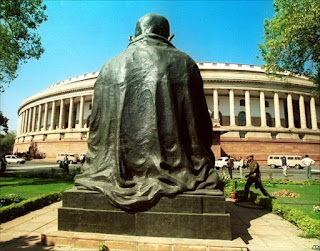CAA does not apply to Nagaland and most Northeastern state
"When Mamata opposes CAA, I am asked are you a bigger Bengali" - Himanta
New Delhi
What should politicians such as K G Kenye, onetime Rajya Sabha MP and now Nagaland Power Minister, and former NPF chief Shurhozelie, who expelled Aja (Kenye) for supporting the Citizens Amendment Bill in 2019, do in 2024 ?
In terms of enforcement on ground, what does CAA - the Citizen Amendment Act and its 39-page Rules announced on March 11, 2023, would mean? In simple terms Prime Minister Narendra Modi's government intends to give a "permanent address" to these persecuted Hindus, Christians, Sikhs, Jains and Buddhists from the three Muslim-dominated nations - Pakistan, Bangladesh and Afghanistan.
It will not apply to Nagaland and states such as Arunachal Pradesh, Mizoram and Manipur whereby anyone from other parts of the country seeking to visit or stay in these states for professional works needs ILP - Inner Line Permit -- a type of special permission from the respective state governments.
Some tribal pockets of northeastern states including Meghalaya, Mizoram and Tripura given "special status" and autonomous powers under the 6th Schedule of the Constitution, too have been kept out of the purview of the new highly controversial law.
These include parts of Mizoram, Karbi Anglong, Dima Hasao and Bodoland Territorial Council areas in Assam and Garo Hills in Meghalaya and tribal demarcated areas in Tripura.
In other words, the 'native tribes' have been given protection but issues remain.
Of course, the law aims to give citizenship to "persecuted" religious minorities from Afghanistan, Pakistan and Bangladesh, who entered India before December 2014.
It lists Hindus, Christians, Parsis, Sikhs, Buddhists, and Jains as minorities, but omits Muslims.
Critics of the law say it excludes Muslims who migrated to India, mainly from Bangladesh. There are some one million Bangladeshi Muslims, 90 percent of them living in Indian states bordering that country.
The apprehension is they "will not be welcome" in India and will be either deported or rendered stateless. Hence, Muslim groups and rights bodies have opposed the law.
The BJP and the Modi government say that Pakistan, Afghanistan and Bangladesh are Muslim-majority countries, so Muslims cannot be treated as "persecuted minorities".
Some supporters believe announcing CAA implementation ahead of the Lok Sabha elections is “a political masterstroke" with a thin cautious line of risk.
It will help pro-Hindu and anti-Muslim polarization in sensitive states such as West Bengal.
In Assam, Chief Minister Himanta Biswa Sarma said his party may have to pay a political price in his state for the latest move. No doubt, most opposition to the citizenship law in 2019 came from Assam.
Still, Sarma said there can be “no doubt or second thought” about supporting the CAA.
The talks about the CAA seeking to disenfranchise citizens especially Muslims is not true. The new law is to grant 'citizenship' and not to take away.
"When Mamata Banerjee opposes CAA, I am asked in my state, Are you a bigger Bengali than West Bengal Chief Minister", Himanta Biswa Sarma said during his Kolkata visit earlier this year.
Importantly yet again, conquering power in West Bengal or winning maximum seats from this province will be a major achievement for the BJP and even the entire Sanghparivar and its fountainhead RSS. If someone has some doubts. Let us make it easier ---- the entire north east sends 25 MPs including (Assam only 14) and West Bengal sends 42 lawmakers into the Lower House of Parliament.
The BJP won big time -- as many as 18 seats out of 42 of West Bengal in 2019, but the target is much higher for 2024. In fact, earlier this month Modi told BJP workers that they should try to win all 42 seats in West Bengal.
Sikhs from Afghanistan also need CAA along with Hindus who have to flee these countries.
In 2021, on August 24, 75 people, including 46 Afghan Sikhs and Hindus and prior to that 23 Afghan Sikhs arrived in India. Many of those who landed in Delhi had lamented the “end of Sikh era and history in Afghanistan”.
Sikhism is real history, not a mythical history. The history of Sikhism in Afghanistan dates back to the 15th century when the founder of Sikh religion Guru Nanak visited the region.
But the CAA issue when mixed with the NRC template makes a more complex combo and this could be debated some other day.
ends







No comments:
Post a Comment